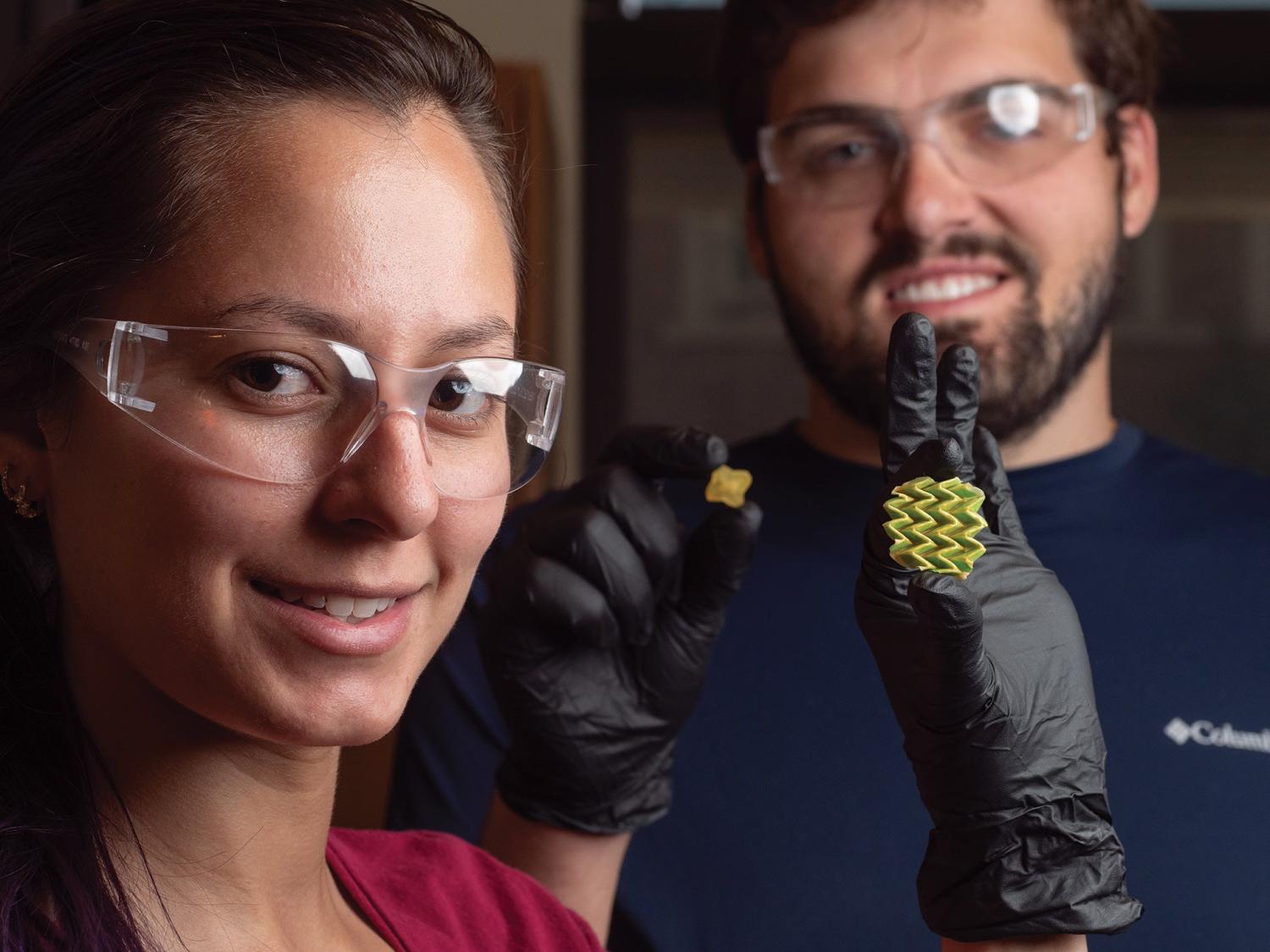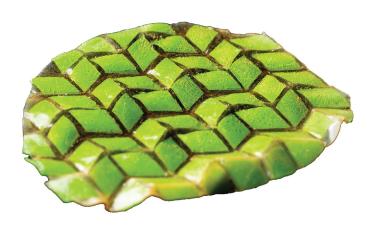Mighty morphin’ shape shifter


How can a square peg fit into a round hole? Pretty easily, thanks to a new shape-shifting material developed by CU Boulder engineers.
Researchers in the Department of Chemical and Biological Engineering used liquid crystal elastomers—the same technology underlying modern television displays—to develop a surface capable of programmable two-way transformations. By using heat and particular wavelengths of light, the researchers can make the material fold and unfold on command.
“The ability to form materials that can repeatedly oscillate back and forth between two independent shapes by exposing them to light will open up a wide range of new applications and approaches to areas such as additive manufacturing, robotics and biomaterials,” said Distinguished Professor Christopher Bowman.
Principal investigator
Christopher Bowman
Funding
National Science Foundation (NSF)
Collaboration + support
National Institute of Standards and Technology (NIST)

